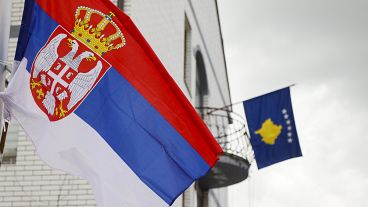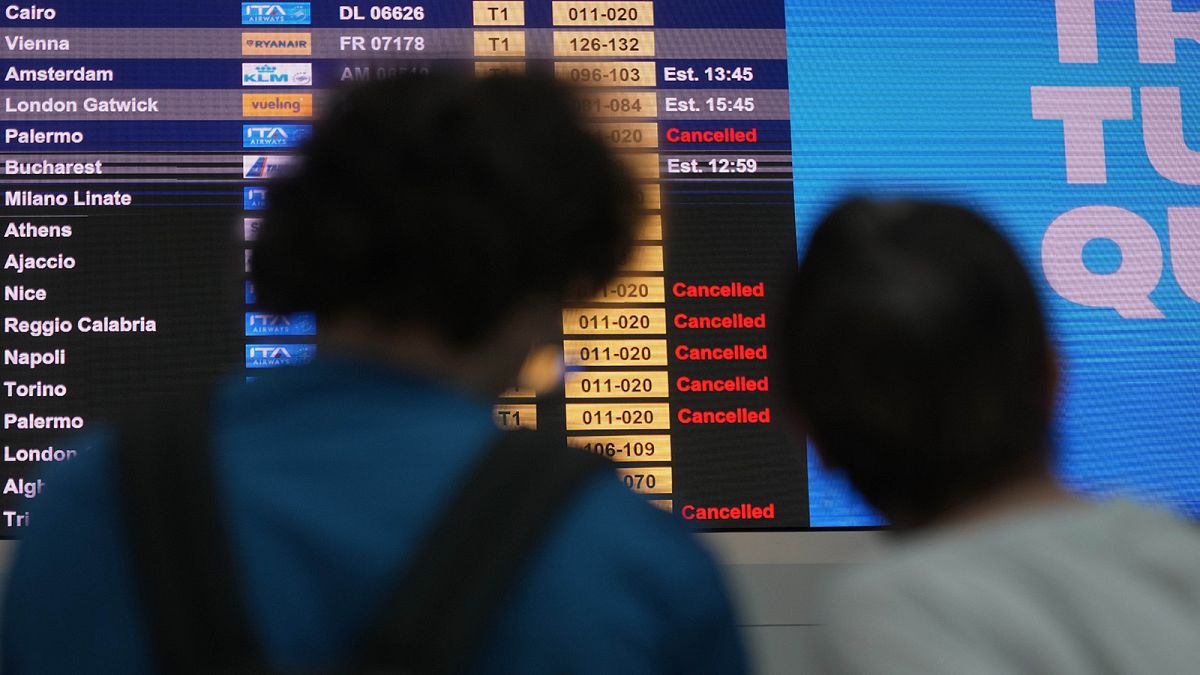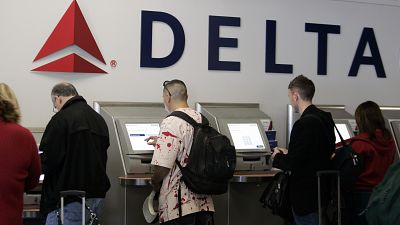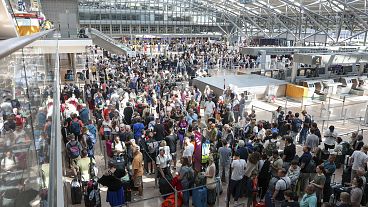Last week's outage caused thousands of flights to be delayed or cancelled, leaving passengers stranded at airports.
A European Commission spokesperson has hit back at accusations by tech giant Microsoft claiming that the EU executive was to blame for a massive IT outage that caused commercial mayhem last week, telling Euronews that the US tech giant never raised any concerns about security with the Commission either before or after the incident.
The outage, which affected 8.5 million computers running Windows and using CrowdStrike’s Falcon cybersecurity software, caused flights to be grounded, businesses to be unable to process card payments, and hospitals and clinics to cancel operations. More on the outage here.
A Microsoft spokesperson yesterday suggested to US media that a 2009 agreement with the European Commission is to blame for the widespread IT failure last Friday.
According to a Microsoft spokesperson, the 2009 agreement "gives makers of security software the same level of access to Windows that Microsoft gets." This deal was intended to counteract Microsoft's monopolistic position, particularly in web browsers.
By contrast, Apple, which was not included in the deal operates in a closed ecosystem, and so was not affected by this update malfunction.
The European Commission spokesperson hit back at the accusations today, telling Euronews that "Microsoft is free to decide on its business model. It is for Microsoft to adapt its security infrastructure to respond to threats in line with EU competition law. Additionally, consumers are free to benefit from competition and choose between different cybersecurity providers."
The spokesperson also said that "the incident was not limited to the European Union and that Microsoft has never raised any concerns about security with the Commission either before or after the incident."















